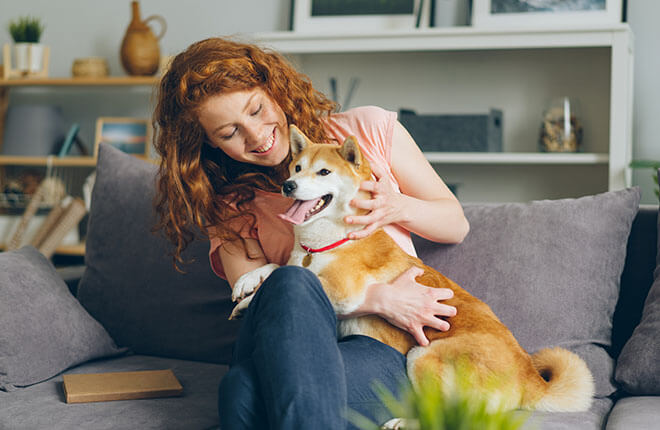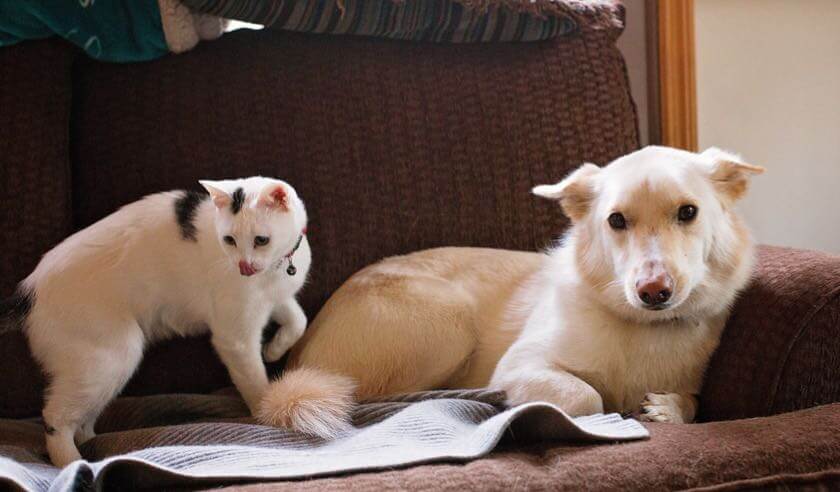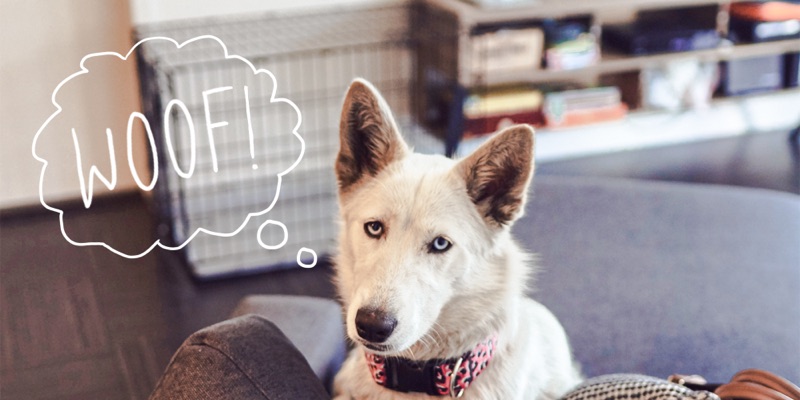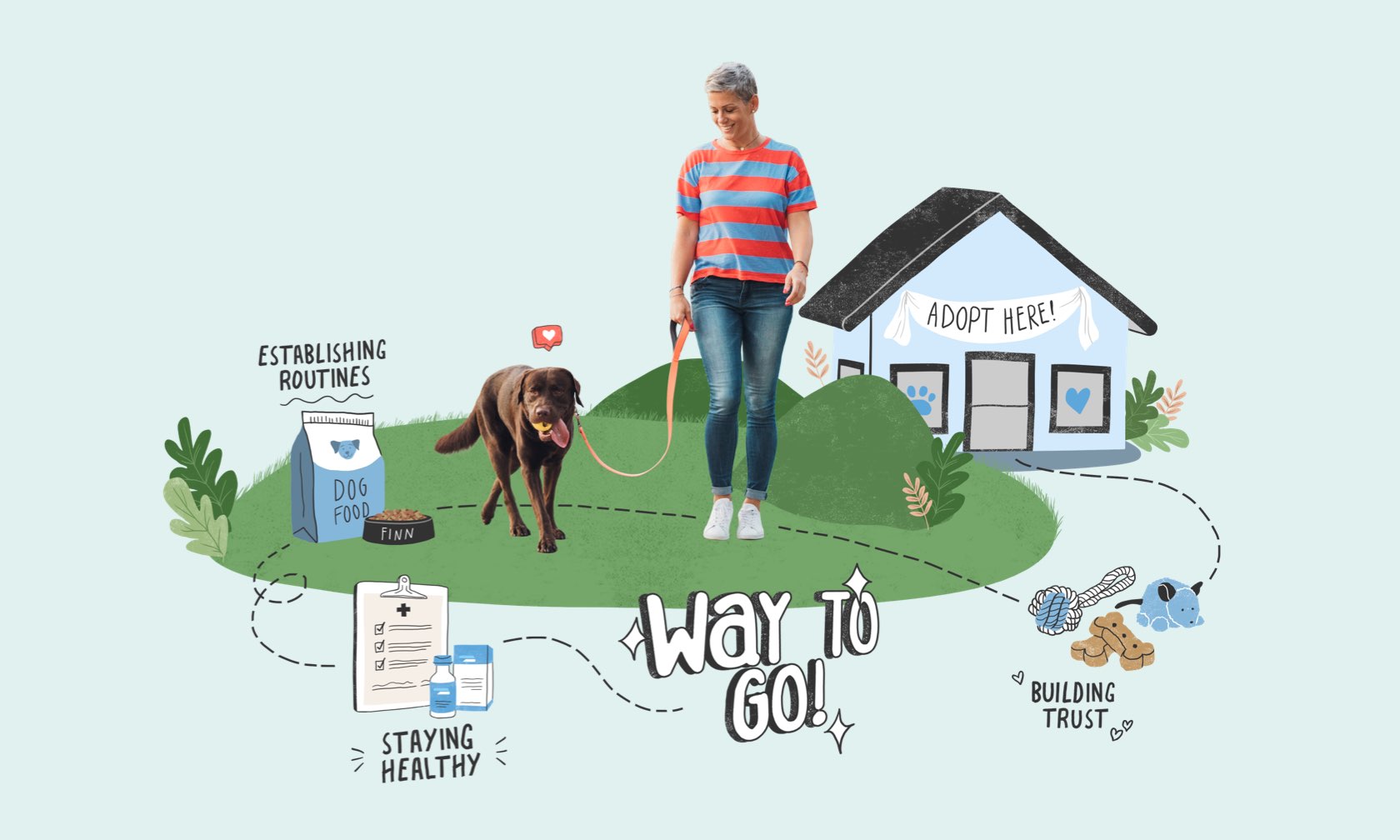Many dogs do well in apartments, and not just the small breeds. If you’re looking to adopt a dog as an apartment dweller, you just need to consider a few things before bringing them home. Let's look at some important considerations when adding a new dog to your apartment home.
What Size of Dog Does Best in an Apartment?
Many apartment residents assume that the best dogs for apartments are the small ones, and some landlords do place restrictions on the size and breed of dogs allowed. In many cases, it's less about a dog's size and more about the space required for them to be comfortable and happy (not to mention accommodating their necessities like crates and beds). For smaller apartments, breeds like French Bulldogs, Pugs, Cavalier King Charles Spaniels, Shih Tzus, or Chihuahuas are great options. Because of their smaller size, they don't require as much space for their crates and pet beds or as much indoor room to play.
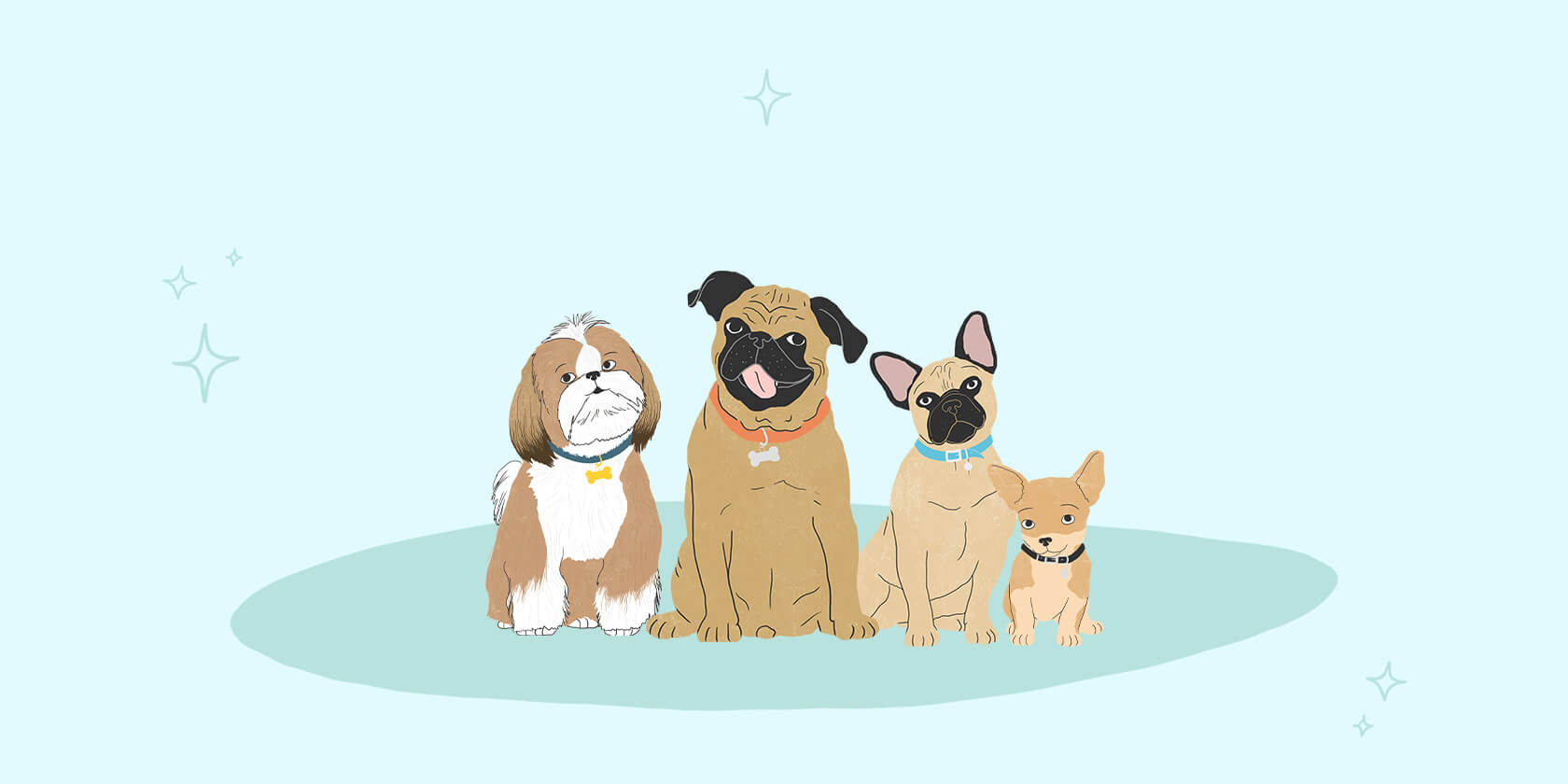
There are medium and large dog breeds that can also do well living in apartments. Breeds like Great Danes, Greyhounds, and Golden Retrievers tend to enjoy being near their humans. As long as their physical exercise needs are met, they can enjoy couch cuddle time as much as a small dog. Just make sure that there is adequate space for their beds, supplies, and an open area where they can play with you and their toys inside your apartment.
Your apartment’s layout and accessibility are also important to consider. If your kitchen and dining areas are small or narrow, a larger dog can make mealtimes a bit of an adventure as you navigate cooking and eating around them. Installing baby gates to prevent your dog from accessing these spaces can make your life easier, but gates also reduce the amount of free space your dog will have. If your apartment requires stairs or an elevator ride to reach, think about the size of the dog that you'll be able to reasonably get upstairs and downstairs every day. For example, if your larger dog is ever injured or develops mobility issues as they age, you'll need to be able to help them get up and down the stairs for trips outside.
Think About a Dog's Energy Level for Apartment Living
It's essential to consider your new dog's energy level and if you can consistently meet their exercise needs. Excess energy can lead to unwanted behavioral issues such as nuisance barking, which can also make your apartment neighbors very unhappy.
Some dog breeds tend to be more "couch-potato inclined" than others, such as Shih Tzus, Pugs, or Italian Greyhounds. Lower general energy levels can make living in an apartment easier for a dog. But remember, every dog needs daily exercise and mental stimulation to prevent boredom and destructive behavior like chewing or scratching.
If you have an active lifestyle yourself, dog breeds known for being more energetic can live happily in apartments as long as you're meeting their physical and mental needs. If you spend a lot of time walking, running, or hiking, a breed such as a Golden Retriever, Boxer, or Labrador Retriever can participate in these outdoor activities and do well back home in an apartment.
Dogs and Their Barking
All dogs bark, which must be considered with apartment living. While some breeds are known to be more talkative than others (such as Siberian Huskies or Beagles), even a quieter breed like a Cavalier King Charles Spaniel might bark because of separation anxiety. Many dogs will bark to alert you that someone is approaching your apartment, even if they're just passing by in the hallway. Dogs bred to be more protective of their people and their space, such as Boxers or German Shepherds, are just following their instincts (but your neighbors might not fully appreciate it). And it's not only the large, deep barks that can be a nuisance — small breeds like Chihuahuas or Pomeranians can make their higher-pitch voices heard.
It's essential to help your dog learn how to be quiet when asked, acclimate to the day-to-day sounds of your apartment complex, and introduce positive alone time practice from the get-go to help prevent separation anxiety. If you combine this proactive approach with the tips below, you and your dog will maintain your bond and your neighbors will thank you.
Tips for Keeping Your Dog Happy and Healthy with Apartment Living
There are many ways to meet your dog's physical and mental needs if you live in an apartment:
- Walking, jogging, and hiking. Get active and share some outdoor time together.
- Attend regular dog training classes. Teaching your dog new skills not only contributes to a well-behaved companion but also burns extra energy. There are lots of training classes beyond the basics. A great place to start is preparing for the Canine Good Citizen (CGC) test. CGC training can be a particularly good option for dogs who live around lots of people or other animals in their apartment complex.
- Introduce your dog to a dog sport class. In these classes, they can explore nose work or agility training. Not only is this a great way to provide physical exercise, but it also helps strengthen your bond through training and achieving together.
- Supervised daycare. If appropriate for your dog, consider taking them to dog daycare to have supervised play with other dogs outside of the confines of your apartment.
- Supplement physical exercise with mental enrichment. Enrichment prevents boredom and gives your dog an outlet for energy by focusing their brain on problem-solving and new experiences. Ditch the regular food bowl and challenge your dog's brain with food puzzles or interactive toys. Provide different tactile experiences by rotating through a few different types of chew toys.
When it comes to the best dogs for apartment living, you're not restricted to the tiniest breeds. Think about the different ways you can use your available space, the unique behaviors and needs that come with different breeds, and how you can balance having less physical space by providing more enrichment, stimulation, and outdoor time. Then do a little research on the breeds you enjoy, and you're sure to find a great dog to join you in apartment life.
ZPC-01202R1
